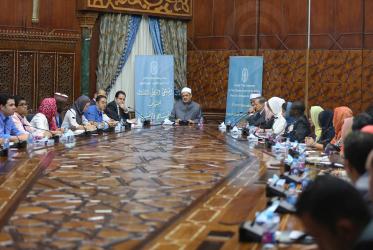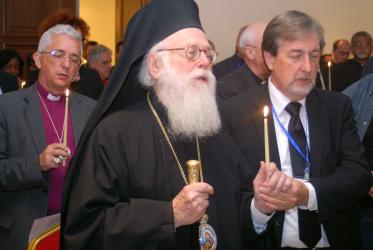Displaying 81 - 100 of 130
WCC welcomes Grand Imam of Al-Azhar
01 October 2016
WCC general secretary reflects on peace in Palestine and Israel
20 September 2016
WCC set to observe World Week for Peace in Palestine and Israel
16 September 2016
Seminar will address youth engagement, religion and violence
19 August 2016
Facilitating peace with passion
26 July 2016
Religion: Way of war or path to peace?
30 June 2016
Symposium focuses on religion, violence, extremism
04 February 2016
WCC/UN conference calls for coordinated action on refugee crisis
20 January 2016
At Nordic conference, Tveit reflects on role of hope in advocacy
12 January 2016
Rebuilding a smashed church in Albania
23 December 2015










